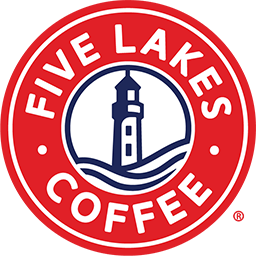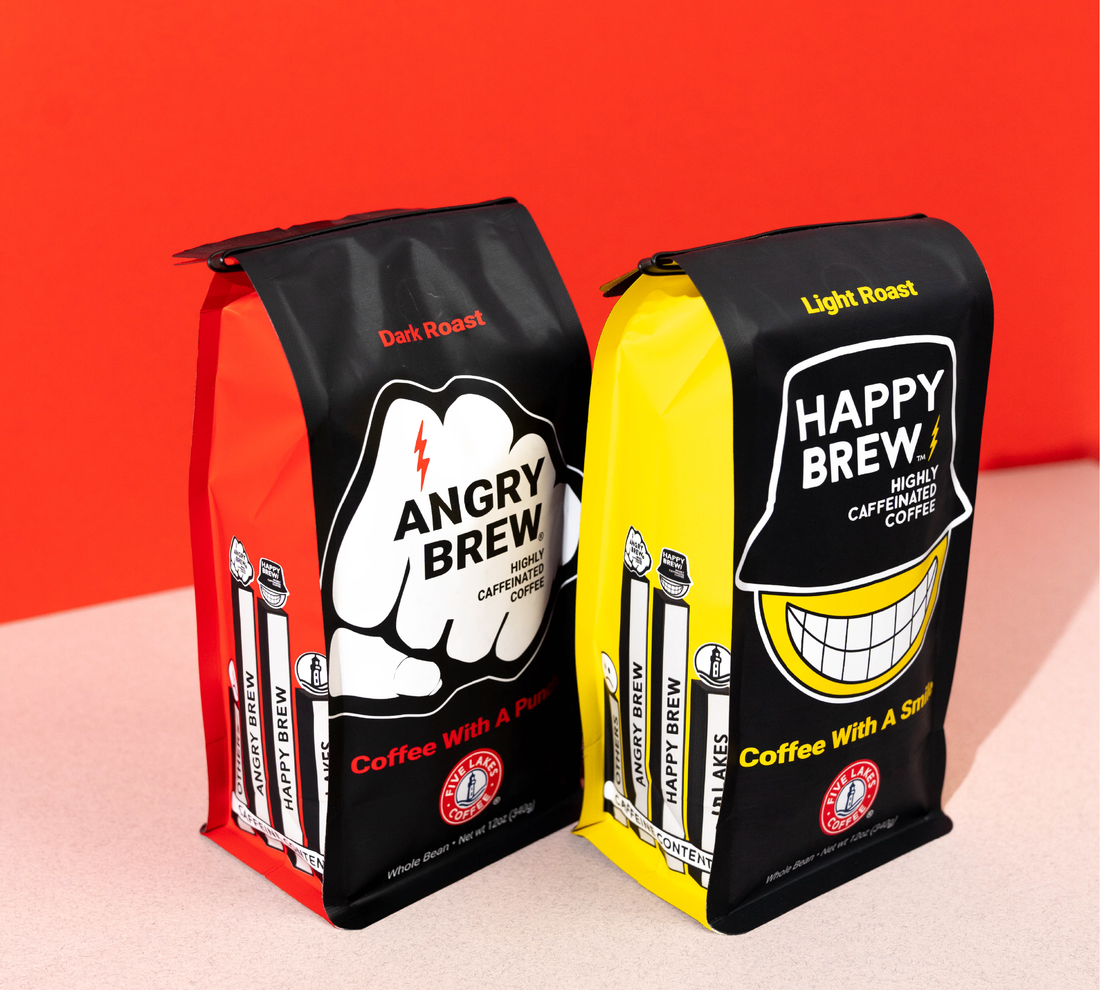Among coffee enthusiasts, I’ve heard and participated in the debate of the merits of dark roast vs light roast coffee. Beyond flavor profiles and aroma, another aspect that usually sparks curiosity is the caffeine content. The most asked question is does the roast level affect caffeine levels? To answer that, let's take a look at the world of coffee roasting and caffeine content where we will discover the differences between light roast and dark roast coffee.
Dark Roast vs Light Roast: Understanding Roast Levels
Before we get to the caffeine content, it's important to understand the basics of coffee roasting. The roast level has a big impact on the taste, aroma, and chemical composition of coffee beans. Light roast coffee usually has a shorter roasting time, typically reaching temperatures between 356°F to 401°F (180°C to 205°C). In contrast, dark roast coffee is roasted for a longer duration at higher temperatures, usually exceeding 437°F (225°C). These temperatures are also very nuanced because they can be quite different based on the location of the temperature probe in the roaster.
Caffeine Content in Light and Dark Roast Coffee
Caffeine is a natural stimulant found in coffee beans, offering an energy boost and heightened alertness. This just might be the reason I start every day with a cup of coffee, but I am not going to admit to anything today. The caffeine content in dark roast vs light roast coffee varies based on several factors, including the type of coffee bean (region grown), brewing method, and serving size. However, the roast level also plays a role in determining caffeine levels.
Light Roast Coffee
Contrary to popular belief, light roast coffee typically contains slightly higher levels of caffeine compared to dark roast coffee. During the roasting process, lighter roasts are exposed to lower temperatures for a shorter duration. This means that it preserves more of the caffeine content present in the beans. As a result, light roast coffee may offer a more pronounced caffeine kick, which can make it your ideal choice for that morning pick-me-up or maybe it’s a midday energy boost.
Dark Roast Coffee
Unlike the light roast, dark roast coffee undergoes prolonged exposure to higher temperatures during the roasting process. While this is how we get that rich, bold flavor profile with hints of caramelization and smokiness, it also leads to a slight reduction in caffeine content. The extended roasting time causes some of the caffeine molecules to break down, resulting in a less acidic brew. However, dark roast coffee still contains a significant amount of caffeine, and it’s a popular choice for espresso enthusiasts and those who enjoy a robust and intense flavored cup of coffee.
Dark Roast vs Light Roast: The Brewing Process
How the coffee is brewed is another factor we have to look at that can make a difference in the caffeine levels. For instance, If you brew your coffee by weight you will end up with more individual dark roast beans because they weigh less. This will make up most of the difference in caffeine keeping the caffeine content similar to the light roast. But, if you measure your coffee by volume then you’re going to get less dark roast beans which will mean less caffeine which could potentially be a noticeable difference.
What Roast Is Right for You?
For me when deciding what to choose, caffeine content is low on my priority list. I believe the more important factors to consider are flavor and aroma – they will give you the most enjoyable experience possible. Light and dark roast both offer distinct flavor profiles and ultimately, personal preference should guide your choice when selecting between the two. Whether you prefer the vibrant acidity of a light roast or the bold intensity of a dark roast, both varieties offer their unique flavor profiles that celebrate the art and science of coffee roasting.
In the end the caffeine levels of dark roast vs light roast coffee may vary slightly depending on the variables we talked about, but the ultimate pleasure lies in savoring the complex and nuanced flavor of each cup, regardless of its caffeine content. Let’s celebrate the diverse world of coffee and the joy it brings to all of us coffee lovers! So to celebrate, I’m going to head over to Five Lakes and grab another cup right now!
P.S. Give us your feedback on which roast you like best and let us know if you notice a difference in caffeine content.

